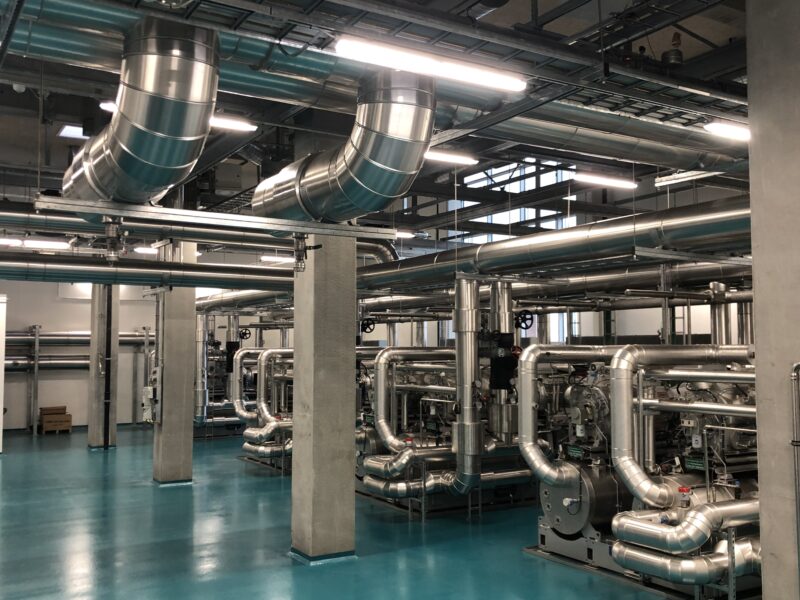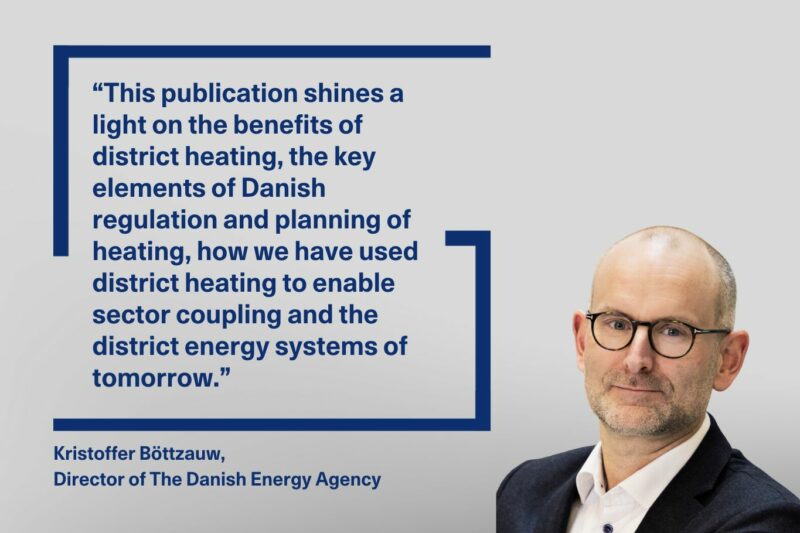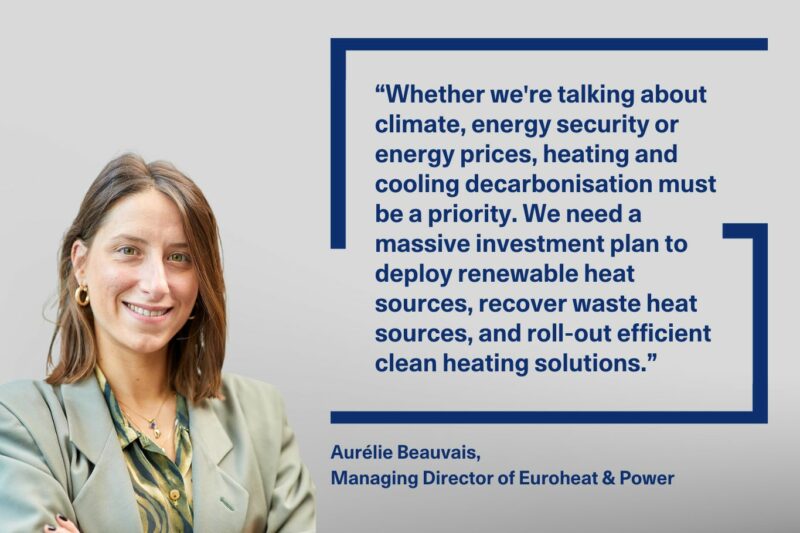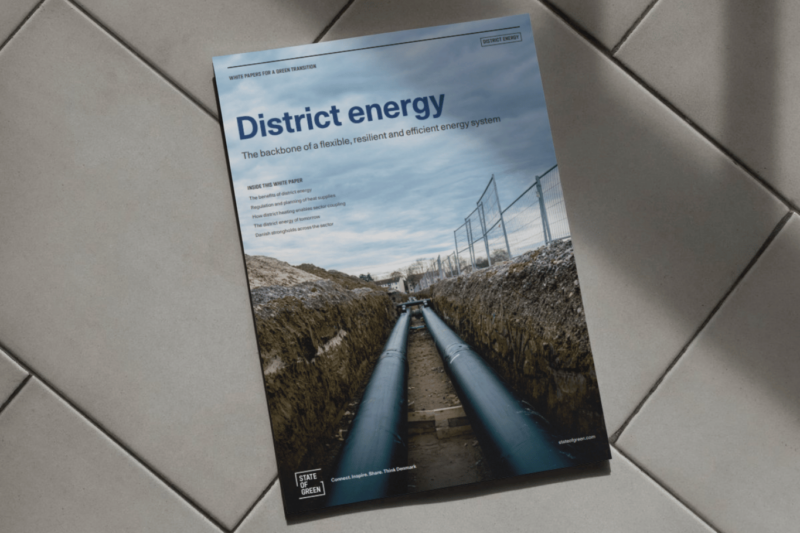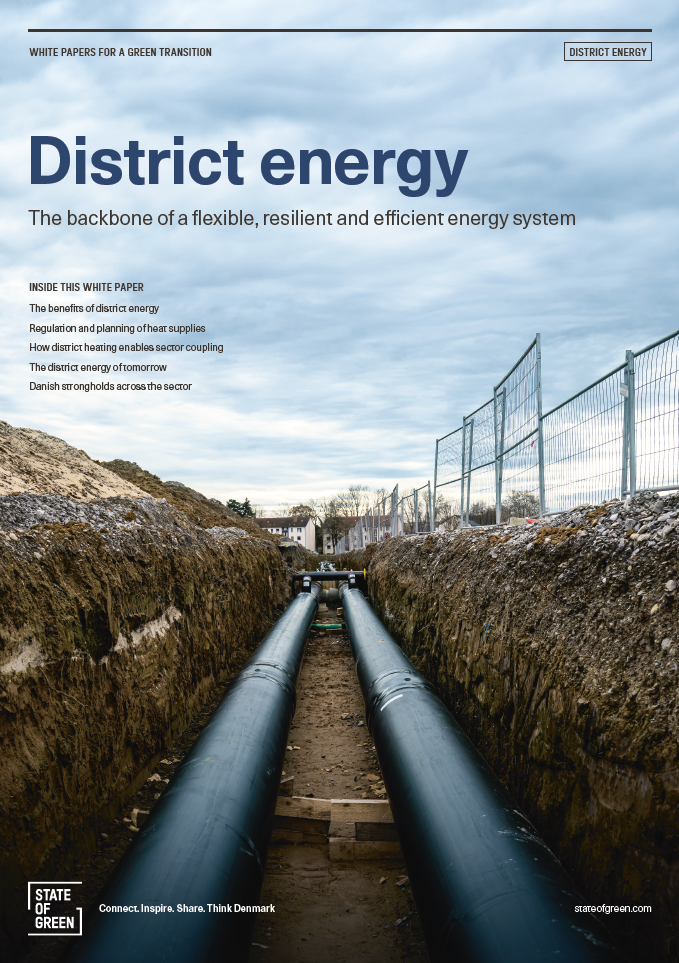News
District energy
New Danish district heating cooperation will help China achieve its climate goals


China is not only the world's most populous nation, but also the largest CO2 emitter. The large CO2 emissions and air pollution challenges are a strong driving force for China in terms of switching to a greener energy system. The vast majority of energy used in heating buildings in China today comes from coal. According to the International Energy Agency (IEA), China has the world's largest district heating network, and it is estimated that there is a huge potential for green heating to more than 200 million Chinese people. In that vein, an increasing amount of Chinese cities embark on new CO2-saving projects to accelerate their green transition.
A new Danish collaboration now aims to support the shift. The Danish Energy Agency and UNEP DTU Partnership, which is a collaboration between the UN Environment Programme (UNEP), the Technical University of Denmark (DTU) and Danida, will today on 1 July sign a strategic collaboration agreement, making it easier to exchange technical and regulatory knowledge and experiences with selected countries, including China and later on Ukraine. The collaboration paves the way for a coordinated effort to promote green district heating solutions and at the same time strengthens Denmark's current climate efforts in China. The Danish Energy Agency collaborates with Chinese authorities on green energy transition, and UNEP DTU Partnership has for several years worked directly with Chinese cities to develop and implement concrete green solutions for district heating.
“By entering into a collaboration with UNEP DTU Partnership, Denmark's global efforts can better support each other, create good synergies and thereby help countries like China to achieve their climate goals. In Denmark, we have unique knowledge and know-how about green district heating, which we are happy to share with the rest of the world. With this new initiative, we will strengthen co-thinking and join forces. In this way, we can stimulate the strategic approach in our cooperation with China and support the transformation of the Chinese energy system, for the benefit of us all,” says Kristoffer Böttzauw, Director General of the Danish Energy Agency.
- related news: Denmark strengthens green partnerships with China, Vietnam, Mexico, South Africa
A virtual platform for knowledge sharing
The agreement supports among other things the establishment of a virtual platform 'Clean Heating Knowledge Center', which will give Chinese decision-makers access to world-leading Danish know how, that both UNEP DTU Partnership and the Danish Energy Agency specialise in. To realise the ambition to promote green district heating in China, the Danish experiences must be translated into a Chinese context.
“Through our work with cities in China and other parts of the world, we see a huge need for energy efficient and green solutions. It's not just about achieving the global climate goals or meeting Sustainable Development Goal 7 on affordable and clean energy, but about solutions that can directly improve the air quality for millions of people. By building on and expanding our collaboration with the Danish Energy Agency, we will now be able to increase the quality of life for many and share our Danish expertise and green solutions with even more. In short, it is the perfect match to promote green district heating,” says Susanne Pedersen, Director of UNEP DTU Partnership.
The strategic cooperation agreement between the Danish Energy Agency and UNEP DTU Partnership is based on previous collaborations in China, working on the preparation of district heating projects and capacity building with Chinese stakeholders among other things.
You should consider reading
solutions
Combined heat and power production
+6
CopenHill: The story of the iconic waste-to-energy plant
20 November 2024publications
Combined heat and power production
+9

